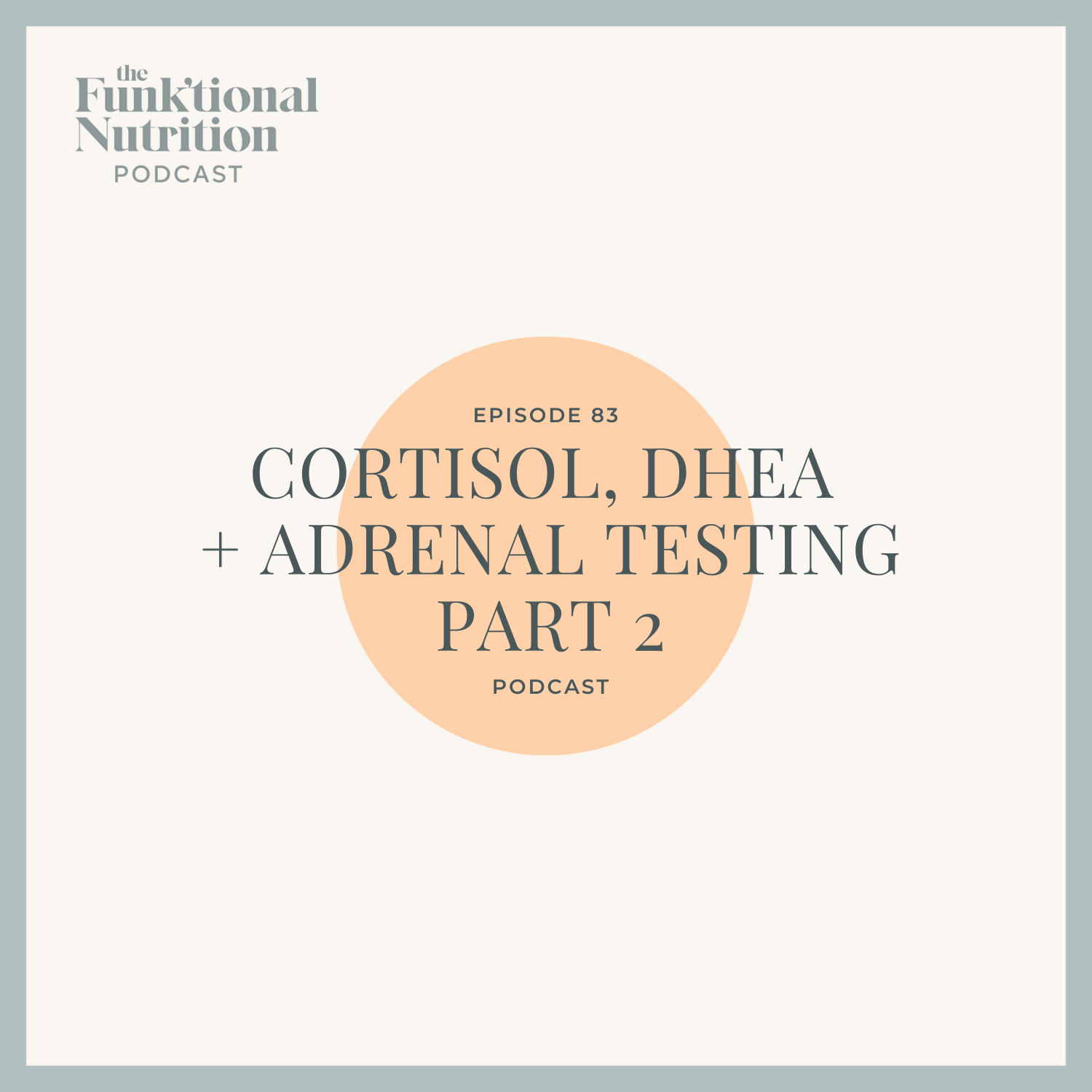Why to Use Functional Lab Testing in Your Nutrition Practice
By Erin Holt
It’s beyond frustrating when blood tests are normal, but health is not. Yet this is what so many people experience today. People who are struggling with their health often feel as though they've slipped through the cracks of conventional healthcare—as though they’ve been overlooked and under-heard by their providers. And they’re just not getting any answers or solutions.
They are burnt out, overwhelmed, and inundated with conflicting information.
And as a clinician—so are you!
Trying to come up with solutions to mystery symptoms or chronic health struggles is tough when you’re doing it on your own with limited tools and resources.
This is where functional lab testing can come in.
To truly help our clients, we must move beyond the one-size-fits-all protocol. Functional lab testing helps you get to the root of your clients’ health problems, and design an individualized plan for them. Through the data provided in functional labs, you can do the detective work to uncover things that may have been overlooked, and fill in the missing puzzle pieces.
This allows you to help your clients more efficiently and on a deeper level, while being able to provide them with more in depth knowledge about what’s going on in their bodies.
Functional lab testing helps you help your clients.
My nutrition practice expanded when I started offering functional lab testing.
My clients had already spent a lot of time, money, and effort Googling, trying things on their own, and throwing things against a wall to see what stuck.
Functional lab testing offered them a completely new approach—one that was catered exactly to them, based on data.
By leveraging functional lab testing, I was able to find my clients the answers they’d been after…and finally get them results.
And those results compounded! As they got better, they started to tell other people about me. Those people started feeling better and told more people. I quickly grew a robust waitlist—all based on word of mouth referrals.
The way I see it, functional lab testing serves 3 main purposes.
1
First, they serve as a clinical tool to identify the root causes of your clients’ health struggles. This can provide insight to healing opportunities.
For example, a client came to me with extreme fatigue and brain fog. Fatigue and brain fog are two extremely common symptoms or “complaints,” and there can be SO many contributing factors. Without functional lab testing, we have to play a bit of a guessing game—throwing things against a wall to see what sticks. This can be time-intensive, as well as frustrating for you and your client.
Through a dried urine hormone test, comprehensive stool test, gluten sensitivity test, and a blood panel, we discovered that she had extremely low DHEA and cortisol levels, significant gut dysbiosis, gluten sensitivity, and dysregulated blood sugar. By addressing these root issues—through specific dietary changes, a supplemental protocol, AND life changes—her energy levels rebounded, as did her mental clarity. “I got my brain back!” she told me at our last appointment.
We were able to help her in an efficient and effective way due to the information the labs provided.
2
The second benefit of functional lab testing is that they can encourage compliance with behavior change. Some folks simply need to see the data to make the requisite changes.
I’m sure you’ve heard at least one client say to you “I’m my own worst enemy.” Or “I know what I should be doing, I’m just not doing it.”
I’ve worked with a lot of women who are burning the candle at both ends—they are the caretakers, the people pleasers, the say yes-ers—and they know they need to slow down, but they just don’t know how. Oftentimes, the concrete evidence that functional labs provide is the thing to get them to slow down.
This is exactly what happened with my client example above. She has made MANY attempts to “get healthier”—but nothing seemed to be working. She knew A LOT about health and nutrition, and was applying lots of different information. But it wasn’t until she saw the state of her stress hormones that she understood “wow, something really has to change.” And that something was the way she was living her life. (Keep in mind, health is not as simple as popping a bunch of supplements. While an individually curated protocol can help dig someone out of a hole, we also have to ask HOW they got into that hole in the first place.)
The interesting thing about data is that it doesn’t lie. When people see the real physiological effects of how their current diet, lifestyle, or stress load is having on their body—they are more likely to take the appropriate action.
Functional lab testing can help hold our clients accountable to themselves—so you can support them on a deeper level.
3
Finally, functional lab testing can provide validation for those who need it.
My own personal experience of medical gaslighting is what led me to this profession. I was told time and time again that, “nothing is wrong” and, “all your labs are normal.” I’ve been called a hypochondriac more times than I can count.
This is the same case for many of my clients.
After being told for years that YOU’RE FINE— but feeling ANYTHING BUT FINE—you start to second guess yourself. You start to feel like maybe you can’t trust yourself. A client of mine said, “I was gaslit so hard I started to gaslight myself.” Another client told me, "I just assume all of my symptoms are in my head because that’s what’s been told to me my whole life.”
When I reveal the results of functional labs—and carefully explain what the results mean—a VERY common reaction is tears, “I knew it, I knew I wasn’t crazy.”
This validation can be a healing in itself, and it’s one of the favorite parts of running functional lab testing in our practice.
As a nutrition professional, it makes sense to understand the benefits of functional lab testing and how they might benefit your clientele. But it’s also super important to understand that lab analysis is a skill and an artform that requires a lot of training.
If you are considering adding functional lab testing to your practice, then you want to receive the appropriate functional medicine training.
I can’t tell you how many times someone has come to me saying, “I heard about this test on your podcast, so I asked my practitioner for one, but we don’t know what to do with the results.”
A very common trend we’re seeing in the functional nutrition space right now:
A lot of inexperienced clinicians are ordering functional lab testing without knowing how to
interpret the data
direct the data from the labs into clinical treatment strategies
This is presumably why over 50% of clients who apply to work in our clinic have already worked with another functional provider—without good results. Part of the reason why the functional approach can sometimes get a bad rap is because people can spend GOBS of money on functional lab testing, but still walk away without answers, results or solutions.
It’s not the labs themselves that change the game for our clinical practice; it’s our ability to interpret the data that the labs provide.
It is my opinion that if you are going to order a functional lab test, you should be able to explain what the results mean in a clear and helpful way AND be able to use that information to guide treatment strategies.
This is how you can not only provide your clients with more in depth knowledge about their bodies, but also use this information in a way that can help them feel better.
This is exactly what we teach in the Funk’tional Nutrition Academy— when to order, why to order, how to interpret, and what to do with the results of functional lab tests.
Our grads know how to build protocols that actually meet their clients’ needs, offering comprehensive coaching with a thorough understanding of the science of nutrition.







